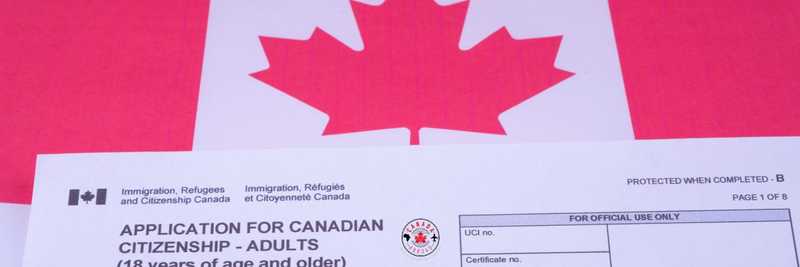Canadian Citizenship Application – What has changed?


Canadian Citizenship Applications – Who is eligible?
Background: The First-Generation Limit on Canadian citizenship applications
Since 2009, Canada’s Citizenship Act has limited Canadian citizenship to the first generation born outside of Canada. This has stopped Canadian citizens who were born outside of Canada from automatically passing their Canadian citizenship to children also born outside Canada. This policy aimed to prevent the indefinite transmission of Canadian citizenship without a tangible connection to Canada. The courts have recently found that the first-generation limit violates the Canadian Charter of Rights and Freedoms. This would then grant Canadian Citizenship to those with a Canadian born grandparent, and not just a parent physically born in Canada, opening citizenship to more “lost Canadians.”
Currently, individuals can acquire Canadian citizenship in the following ways:
- by birth on soil – if a person was born in Canada;
- by naturalization – if a person immigrated to Canada and acquired Canadian citizenship status; and
- by descent – if a person was born outside of Canada, they could derive citizenship from a Canadian citizen parent, born in Canada, or who had been naturalized before their birth.
Recent court ruling and its implications on Canadian citizenship applications
On December 19, 2023, the Ontario Superior Court of Justice ruled that the first-generation limit violates the Canadian Charter of Rights and Freedoms. This would then grant Canadian Citizenship to those with a Canadian born grandparent, and not just a parent physically born in Canada, opening citizenship to more “lost Canadians.” Lost Canadians is a term that originally referred to individuals who lost or never acquired Canadian citizenship due to outdated provisions (sex, marital status, place of birth, naturalization status), which affected whether that person could derive, acquire, or lose Canadian citizenship. The Court declaration does not:
- Strike down the first generation limit for persons born abroad and adopted by a Canadian parent
- Restore citizenship to Section 8 “Lost Canadians”
- Provide citizenship to some descendants of “Lost Canadians”
The Court has suspended its declaration until November 20, 2025 to allow the federal government time to amend the existing legislation. This means that the current rules still apply to Canadian citizenship applications until further notice, unless you qualify for the current interim measure, discussed further below.
On May 23, 2024, Bill C-71, An Act to amend the Citizenship Act was introduced to Parliament, which sought to restore and bestow Canadian citizenship to more individuals and their descendants who were born abroad in the second or subsequent generation. This also includes persons born abroad and adopted by a Canadian parent and “Lost Canadians.” Before Bill C-71 could become law, Parliament was prorogued and Bill C-71 was put on hold. Parliament has until November 20, 2025 to to reintroduce former Bill C-71 and allow Parliament to consider and enact the legislation.
Current Interim Measures for Canadian citizenship applications
On March 13, 2025, t0 address delays in passing Bill C-71, Immigration Minister Mark Miller, approved an interim measure to support those affected by the first-generation limit. Individuals in the following groups can be considered for a discretionary grant of Canadian citizenship beyond the first-generation born in Canada under subsection 5(4) of the Citizenship Act:
- those born or adopted before December 19, 2023, who are subject to the first-generation limit
- those born or adopted on or after December 19, 2023, if their Canadian parent had at least 1,095 cumulative days of physical presence in Canada before their birth or adoption (they will be offered consideration for a discretionary grant on a prioritized basis)
- certain individuals born before April 1, 1949, who remain affected by the first-generation limit
- those who lost their citizenship under the former section 8 of the Citizenship Act due to unmet retention requirements
What does this mean for Canadian Citizenship Applications?
Until new legislation is enacted, individuals outlined in the current interim measure are eligible to apply for a discretionary grant of Canadian citizenship. If the application is approved, they will be granted Canadian citizenship. The citizenship will be effective as of the date the grant is issued, not the day they were born.
Canadian Citizenship applications can be complex depending on the details of each specific case such as what year each individual was born, where they were born, whether their parents were employed by the government abroad, the specific documentation available, and much more. If you require assistance in navigating a Canadian citizenship application, contact us today!
Examples of who may be eligible to submit a Canadian Citizenship application under upcoming changes
Immigration, Refugees and Citizenship Canada (IRCC) provided the following examples of who may be eligible for Canadian citizenship under the proposed amendments to the Citizenship Act:
Section 8 Loss of Citizenship
- Patrick was born in 1978 in Kenya. His father was a Canadian citizen who was also born abroad. Patrick was born a Canadian citizen but did not apply to retain his citizenship before he turned 28, as required by the Section 8 retention requirements in place at the time, and lost his citizenship in 2006 when he turned 28.
- Current legislation – Section 8 was repealed and replaced with the first generation limit in 2009;
- Patrick’s citizenship was not restored because he was born in the second generation abroad.
- New legislation – Upon coming into force, Patrick’s citizenship is restored retroactively to the date of loss.
Automatic Citizenship By Descent For Descendants of Lost Canadians
- Clifford’s grandmother was born in Canada in 1938 and moved to the United-States. His grandmother lost her Canadian citizenship when she married an American citizen. In 2009, her Canadian citizenship was restored.
- Current legislation – the first generation limit was introduced in 2009; while Clifford’s mother is a Canadian born abroad in the first generation, Clifford is not a citizen because he was born in the second generation abroad.
- New legislation – Upon coming into force, Clifford is a citizen retroactive his date of birth in 1998.
Automatic Citizenship By Descent For Persons Born Abroad To A Canadian Citizen Parent
- John is born in 2011 in England. His mother is a Canadian citizen who was also born abroad.
- Current legislation – As John is born in the second generation abroad, he is subject to the first generation limit to citizenship by descent and is not a Canadian citizen.
- New legislation – Upon coming into force, John becomes an automatic citizen by descent, retroactive to his date of birth.
Access To The Direct Adoptions Grant For Persons Adopted Abroad By A Canadian Citizen Parent
- Ali is born in 2014 in Spain. He is adopted by Canadian citizen parents in 2015, who were also born abroad.
- Current legislation – Ali is unable to apply for the direct grant of citizenship for an adopted person because his Canadian parents are unable to pass on citizenship to Ali. This is because they were born in the first generation outside Canada.
- New legislation – Upon coming into force, Ali can apply for the direct grant of citizenship and, once his application is granted, is a citizen as of the date of his grant.
Note: This blog post is for informational purposes only and does not constitute legal advice.



